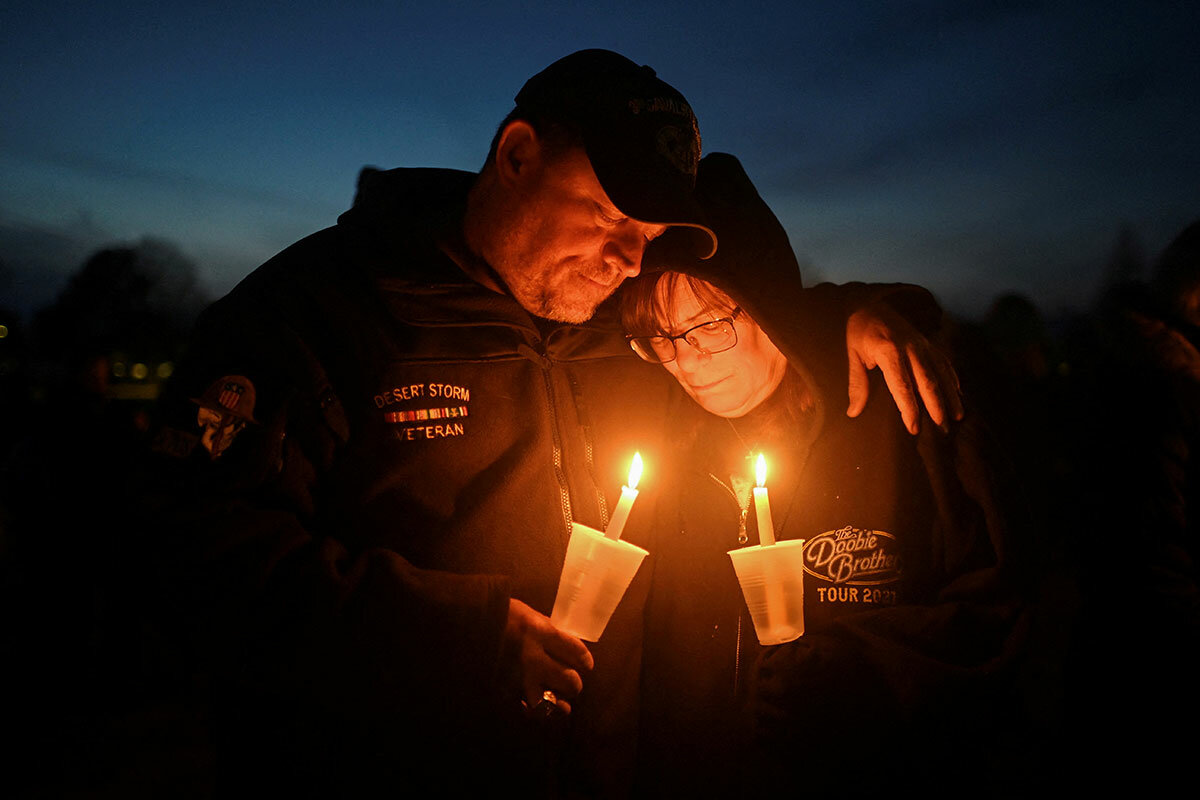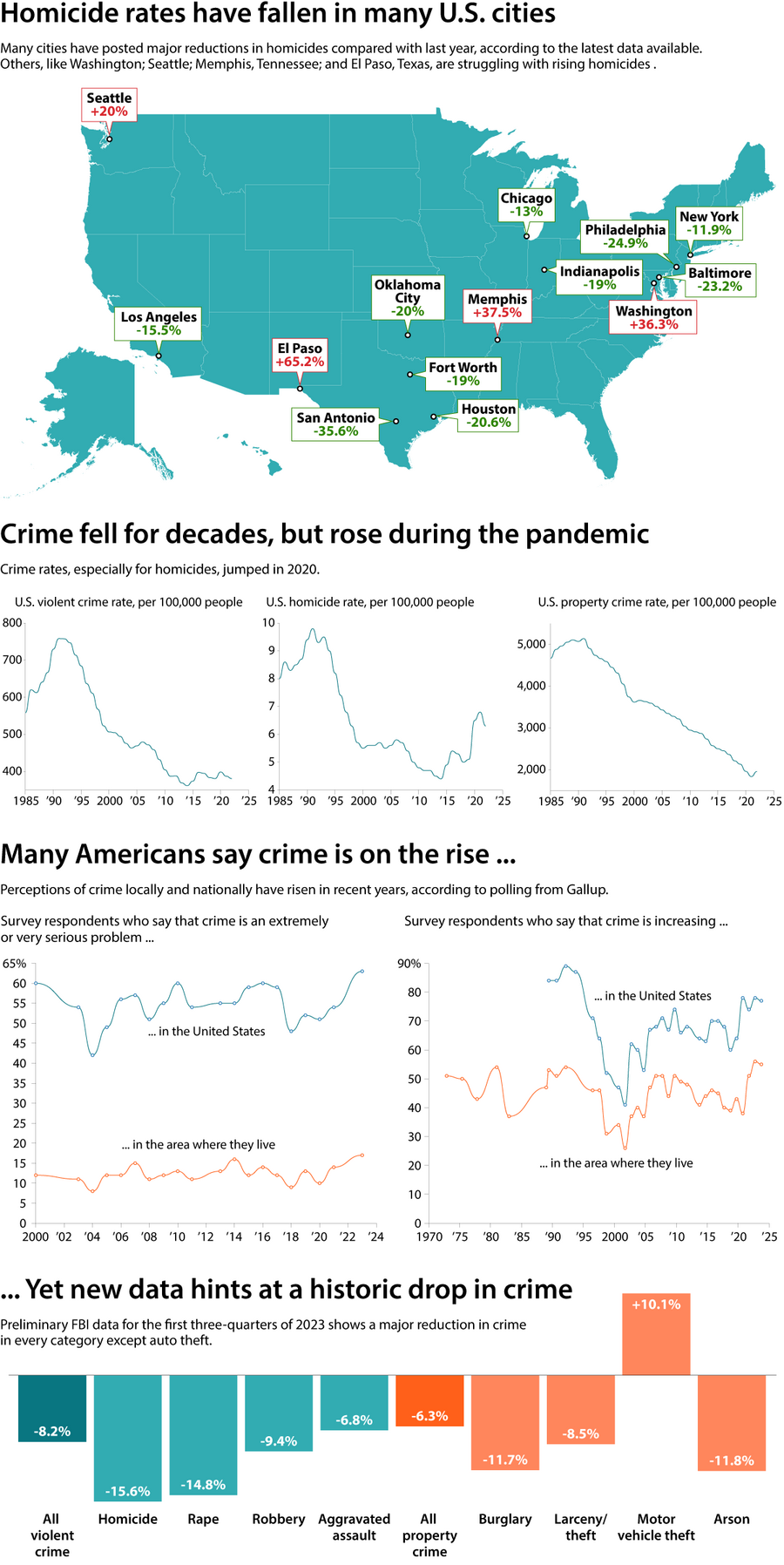Perceptions of Jan. 6, 2021, aren’t just about the past. Diverging views of the U.S. Capitol riots may influence the political path ahead and trust in government.

Why is Christian Science in our name?
Our name is about honesty. The Monitor is owned by The Christian Science Church, and we’ve always been transparent about that.
The Church publishes the Monitor because it sees good journalism as vital to progress in the world. Since 1908, we’ve aimed “to injure no man, but to bless all mankind,” as our founder, Mary Baker Eddy, put it.
Here, you’ll find award-winning journalism not driven by commercial influences – a news organization that takes seriously its mission to uplift the world by seeking solutions and finding reasons for credible hope.
Explore values journalism About usMonitor Daily Podcast
- Follow us:
- Apple Podcasts
- Spotify
- RSS Feed
- Download
Christa Case Bryant covered Jan. 6, 2021, from inside the U.S. Capitol. Today she explores the continuing fallout. Story Hinckley is traveling for the presidential primaries. She explains below what that entails.
Their respective takes – democracy strained, democracy striving – share a commitment to completeness.
“The No. 1 thing you need to do if you want to be fair is constantly evaluating. ... What am I missing?” Christa has said. Every voice counts.
Most Americans don’t vote. “So I want to make sure that I’m talking to the Joe ... outside of the Hardee’s who isn’t even thinking about the election yet,” Story says. “That’s interesting.” We think so, too.
Already a subscriber? Log in
Help fund Monitor journalism for $11/ month
Monitor journalism changes lives because we open that too-small box that most people think they live in. We believe news can and should expand a sense of identity and possibility beyond narrow conventional expectations.
Our work isn't possible without your support.
Today’s stories
And why we wrote them
A deeper look
( 10 min. read )
Today’s news briefs
• U.S. jobs report shows resilience: U.S. employers added a robust 216,000 jobs last month in the face of sharply higher interest rates.
• Iowa shooter a target of bullying: Investigators are seeking the motives of a 17-year-old student who opened fire at a small-town Iowa high school Thursday. Two friends and their mother say the suspect was a quiet person who had been bullied for years.
• Russia gets missiles from North Korea: U.S. intelligence officials say Russia has received weapons from North Korea and is seeking close-range ballistic missiles from Iran.
• New York immigration lawsuit: The city is suing 17 bus companies, accusing them of illegally transporting more than 33,000 migrants to the city from Texas.
• U.S. aid for Japan earthquake recovery: The United States says it is preparing military logistical support and aid for regions in Japan devastated by an earthquake.
( 5 min. read )
Defending democracy and opposing authoritarianism. Projecting leadership and coming to the aid of allies. President Joe Biden’s values-laden foreign policy has been a political asset ... until this challenging election year.
Graphic
( 2 min. read )
The U.S. homicide rate dropped by the most on record in 2023 – a welcome reversal after pandemic spikes in violence. But a majority of Americans still think crime is rising. What lies behind the disconnect?
( 6 min. read )
Britain is back in Europe! Well, in Horizon Europe, the European Union’s research and innovation program. The renewed cooperation between British and EU scientists is restoring opportunities that Brexit had stymied.
Monitor Breakfast
( 4 min. read )
At a moment when adequate funding is paramount, it’s also in peril. Shalanda Young, President Joe Biden’s top budget official, shared concerns about the possibility of a government shutdown during a Monitor Breakfast with reporters on Friday.
Podcast

A reporter’s tactics and tales from the campaign trail
Political journalism keeps getting harder. But recording authentic, real-time public responses to candidates as they crisscross the country remains a craft that matters and a civic responsibility. We asked our national political correspondent how she approaches the work.
Covering Campaign 2024
The Monitor's View
( 3 min. read )
In the past three decades, an estimated 2,000 American cities adopted housing policies encouraging or requiring landlords to deny rental dwellings to formerly incarcerated people and evict existing tenants with criminal histories – including 104 municipalities in California. This week the state adopted the first law in the United States banning the practice.
The new measure fits into a broader reconsideration in California and across the U.S. of the relationship between punishment and redemption. That shift recognizes that the rehabilitating aims of justice rest – both behind prison walls and within communities – on seeing the inherent dignity and capacity for good in all individuals irrespective of their worst mistakes.
“If you look at everything that needs to change, yes, it has to happen internally” in the way that prisons prepare inmates to return to society, said Jessica Fernandez, chief of community reentry services for the California Department of Corrections and Rehabilitation. But “then you have also to change the mind of the community,” she told the Los Angeles Times days before the new law came into effect.
So-called crime-free housing policies sought to improve safety in multifamily rental blocks in response to drug crises like that of crack cocaine in the early 1990s. A Rand Corp. study in November, however, documented how the policies have instead destabilized low-income, predominantly Black and Hispanic neighborhoods. Evictions rose in places where the laws were applied, the report found, while crime rates remained unchanged.
In 2020, Oakland and Berkeley became the first U.S. cities to ban criminal background checks from housing applications. More communities have followed since. A handful of states, such as New York and Illinois, may be poised to enact reforms similar to California’s.
Making it easier for formerly incarcerated people to find stable housing after their release dovetails with a range of ways prison reformers are rethinking the outcomes of incarceration. California and Pennsylvania are transforming prisons to focus on wellness, education, and community living to better equip people in prison for life on the outside. That approach helped Norway cut its recidivism rate from nearly 70% in the 1990s to 20% today.
But reintegrating formerly convicted people in society also requires cultivating trust and empathy where they seek to settle. One way to improve those prospects may involve erasing the walls between life inside and out – even temporarily. A so-called inside-out college program run by the University of Delaware, for example, enables outside students and people in prison to take classes together.
“When I’m in a room on a Monday night with my outside students and my inside students, it’s a classroom, not a cell block, and we’re doing education, not prison,” Daniel O’Connell, senior scientist at the University of Delaware’s Center for Drug and Health Studies, told the National Institute of Justice. “I have my outside students constantly telling me how enlightening it was for them to be part of that experience. And I’ve had inside students who found out that they could sit in a college classroom, participate, be successful, and do the assignments.”
The new California law passed without a dissenting vote. Communities throughout the state may now discover – as students in Delaware did – that their safety involves a recognition of individual worth cultivated on both sides of prison walls.
A Christian Science Perspective
Each weekday, the Monitor includes one clearly labeled religious article offering spiritual insight on contemporary issues, including the news. The publication – in its various forms – is produced for anyone who cares about the progress of the human endeavor around the world and seeks news reported with compassion, intelligence, and an essentially constructive lens. For many, that caring has religious roots. For many, it does not. The Monitor has always embraced both audiences. The Monitor is owned by a church – The First Church of Christ, Scientist, in Boston – whose founder was concerned with both the state of the world and the quality of available news.
( 3 min. read )
A spiritual view of life shows us the wholeness we cannot lose.
Viewfinder

A look ahead
Thanks for ending your Friday with us – and come back next week. Neri Zilber will be reporting on the ramifications for Israel of its continued military action in Gaza, and assessing what that action has and hasn’t achieved. Hillary Chura will look at how New York is trying to match employers with migrants who’ve received work authorization.
Finally, if you haven’t already, please let Mark Sappenfield, our editor, hear your thoughts about the news briefs feature we introduced this week. Mark’s at editor@csmonitor.com.










